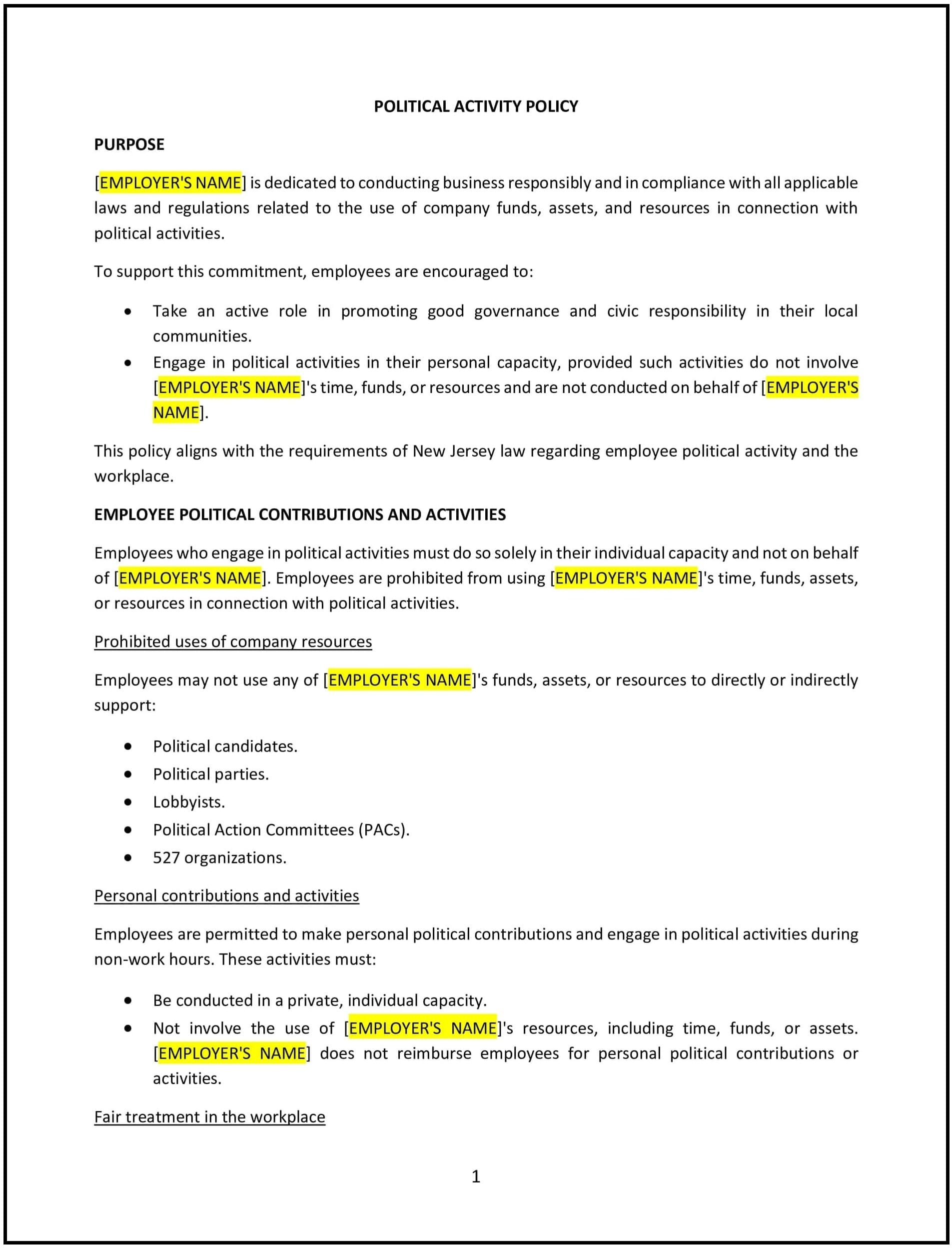Political activity policy (New Jersey): Free template
Got contracts to review? While you're here for policies, let Cobrief make contract review effortless—start your free review now.

Customize this template for free
Political activity policy (New Jersey)
A political activity policy helps New Jersey businesses outline the expectations for employee participation in political activities while maintaining a focus on workplace productivity and professionalism. This policy sets boundaries for political involvement during work hours, addresses the use of company resources, and clarifies how political activities may impact the workplace environment.
By adopting this policy, businesses in New Jersey can ensure that employees engage in political activities responsibly while avoiding conflicts of interest and maintaining a respectful work environment.
How to use this political activity policy (New Jersey)
- Define acceptable political activities: Specify the types of political activities employees may engage in, both inside and outside of work, and how these activities should be conducted during work hours.
- Address the use of company resources: Prohibit employees from using company time, email, social media accounts, or other company resources for political campaigning or fundraising.
- Set expectations for behavior at work: Encourage employees to respect differing political views and ensure that political discussions do not disrupt the workplace or create conflicts.
- Provide guidelines for political donations: Clarify whether employees are allowed to make political donations on behalf of the company or as part of their role within the business.
- Address conflicts of interest: Require employees to disclose any political activities that may create a conflict of interest with their work responsibilities, clients, or the company.
- Maintain neutrality: Emphasize that the company must remain neutral in political matters and should not support or endorse any particular political candidate or party.
- Review and update: Regularly assess the policy to reflect changes in New Jersey political activity laws, workplace culture, and business needs.
Benefits of using this political activity policy (New Jersey)
This policy provides several benefits for New Jersey businesses:
- Promotes workplace respect: Ensures that political activity does not interfere with work productivity or create tension among employees.
- Prevents conflicts of interest: Protects the company from situations where political activities could lead to bias, favoritism, or ethical concerns.
- Reduces potential legal risks: Helps businesses avoid violations of political campaign laws or regulations related to employee political activities.
- Strengthens company reputation: Demonstrates that the business is focused on professionalism and impartiality while respecting employees' rights to engage in political activities.
- Encourages fair and respectful engagement: Creates a policy that allows employees to participate in politics while maintaining a healthy and respectful work environment.
Tips for using this political activity policy (New Jersey)
- Communicate the policy clearly: Ensure all employees understand the guidelines around political activities and their role in maintaining a neutral work environment.
- Monitor workplace behavior: Keep track of political discussions or activities within the workplace to ensure they align with company expectations.
- Train managers: Provide training for managers on how to handle political discussions and ensure the workplace remains respectful and free of conflict.
- Encourage open dialogue: Encourage employees to express their political views responsibly, but remind them to maintain professionalism in the workplace.
- Review the policy regularly: Update the policy to reflect any changes in New Jersey laws, business practices, or employee feedback.